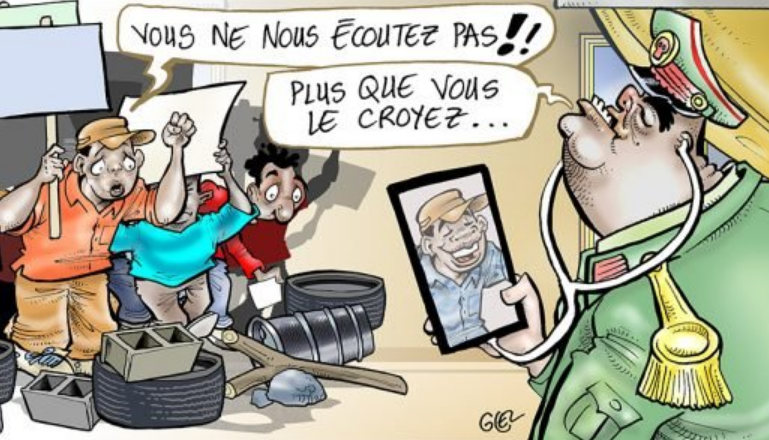The average African still has the distinct impression that their continent is only “in” at its worst and “out” at its best. That is, “out” in terms of access to Covid-19 vaccines, which they have difficulty in duplicating themselves, and “in” in terms of insecurity, as five of their countries rank among the top 10 least peaceful on the planet, according to the 2021 edition of the Global Peace Index.
Even when political cynicism goes “high tech”, Africa is still in the game. This is what the recent “PegasusGate” has proven.
On 18 July, a consortium of 17 news outlets coordinated by the Forbidden Stories platform, in collaboration with Amnesty International’s Security Lab, announced that approximately 50,000 phone numbers had been targeted by the Israeli company NSO Group’s powerful spyware programme.
READ MORE Cyber surveillance: a new market, with old clients
Known as Pegasus, the malware infects both iPhones and Android devices, and allows operators to surreptitiously siphon off locations, messages, photos, and even unannounced call or visual recordings via secretly activated microphones and cameras.
Three African countries accused
Officially intended to track criminals and terrorists, the software is said to have found its way into the hands of countries with dubious human rights records and intentions that are hardly compatible with respect for privacy and professional confidentiality.
In countries such as China and Azerbaijan, the majority of the intrusive software’s targets were journalists, oppositionists, lawyers and human rights defenders.
This may simply be the tip of the iceberg, as Agence France-Presse recently reported that 180 men and women of the press, 600 politicians, 85 human rights activists and 65 business leaders were being monitored using this software.
However, some of the targets of this massive espionage campaign have been forced into exile or even assassinated, like the emblematic Saudi Jamal Khashoggi.
Is this type of technology beyond the reach of African regimes, some of which like to strike a chord by reiterating that their national budgets are too small to even meet basic social needs?
The consortium of journalists is not so sure.
Subject to confirmation of the data and demonstration of the usage framework, three countries from the continent appear on the damning list of “Pegasus Gate”: Morocco, Rwanda and Togo.
In fact, only a few years ago, Reporters Without Borders accused the Italian-based software company Memento Labs of facilitating the hacking of Ethiopia and Morocco-based journalists.
The NSO Group, for its part, says that it only sold its spyware to 36 “approved governments”. Could this caring IT security company have been the victim of a hacker attack?
